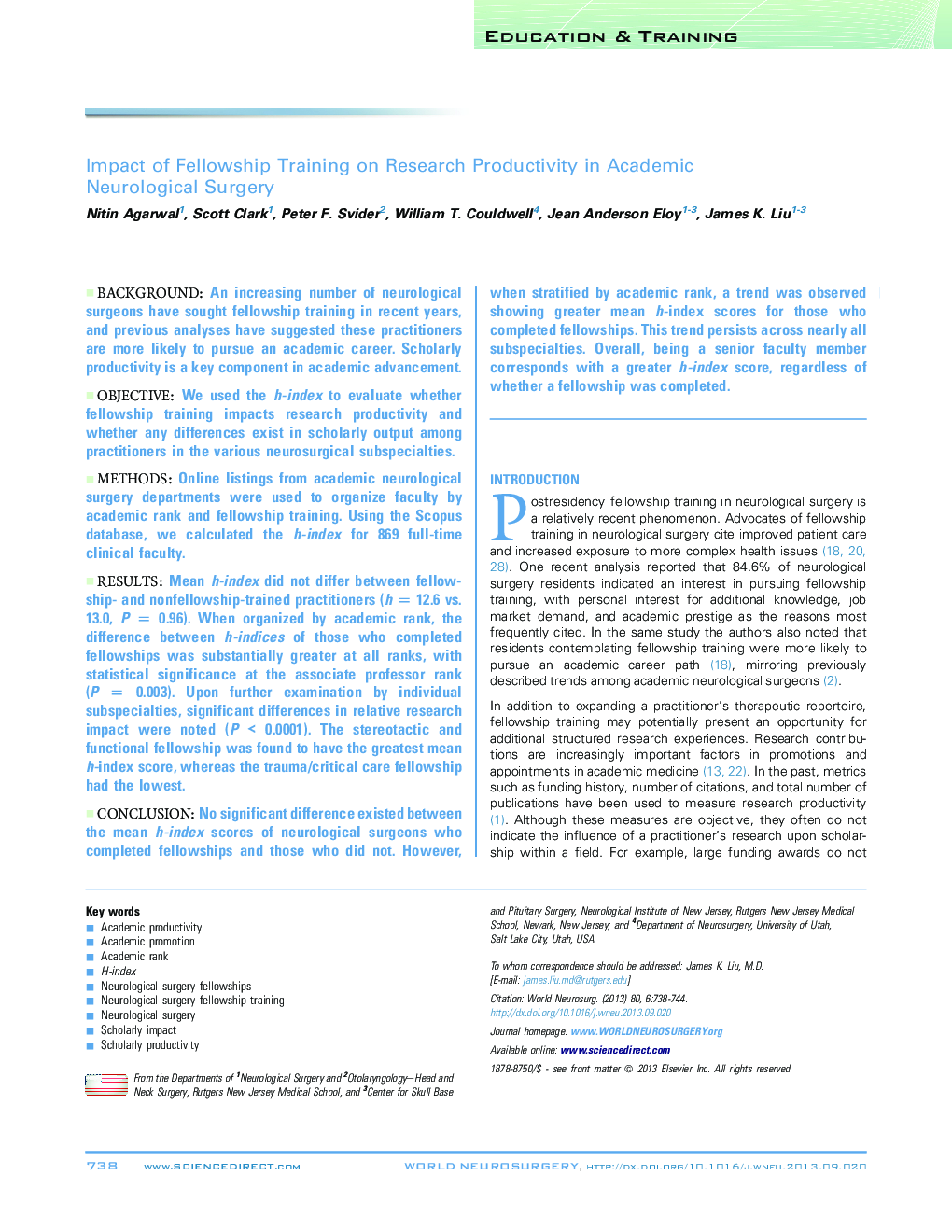| Article ID | Journal | Published Year | Pages | File Type |
|---|---|---|---|---|
| 3095775 | World Neurosurgery | 2013 | 7 Pages |
BackgroundAn increasing number of neurological surgeons have sought fellowship training in recent years, and previous analyses have suggested these practitioners are more likely to pursue an academic career. Scholarly productivity is a key component in academic advancement.ObjectiveWe used the h-index to evaluate whether fellowship training impacts research productivity and whether any differences exist in scholarly output among practitioners in the various neurosurgical subspecialties.MethodsOnline listings from academic neurological surgery departments were used to organize faculty by academic rank and fellowship training. Using the Scopus database, we calculated the h-index for 869 full-time clinical faculty.ResultsMean h-index did not differ between fellowship- and nonfellowship-trained practitioners (h = 12.6 vs. 13.0, P = 0.96). When organized by academic rank, the difference between h-indices of those who completed fellowships was substantially greater at all ranks, with statistical significance at the associate professor rank (P = 0.003). Upon further examination by individual subspecialties, significant differences in relative research impact were noted (P < 0.0001). The stereotactic and functional fellowship was found to have the greatest mean h-index score, whereas the trauma/critical care fellowship had the lowest.ConclusionNo significant difference existed between the mean h-index scores of neurological surgeons who completed fellowships and those who did not. However, when stratified by academic rank, a trend was observed showing greater mean h-index scores for those who completed fellowships. This trend persists across nearly all subspecialties. Overall, being a senior faculty member corresponds with a greater h-index score, regardless of whether a fellowship was completed.
